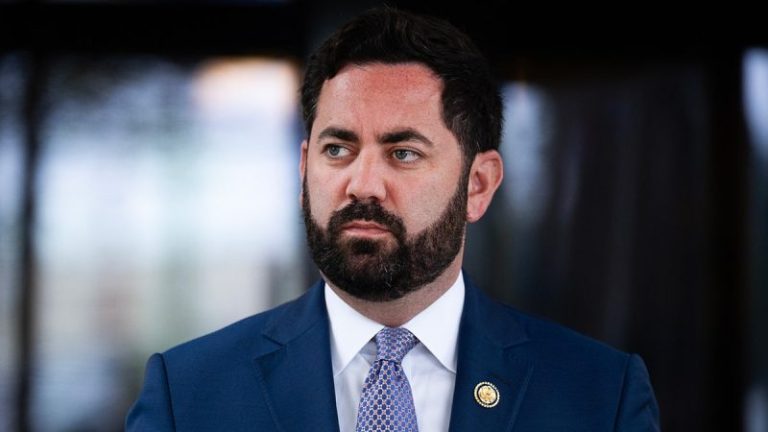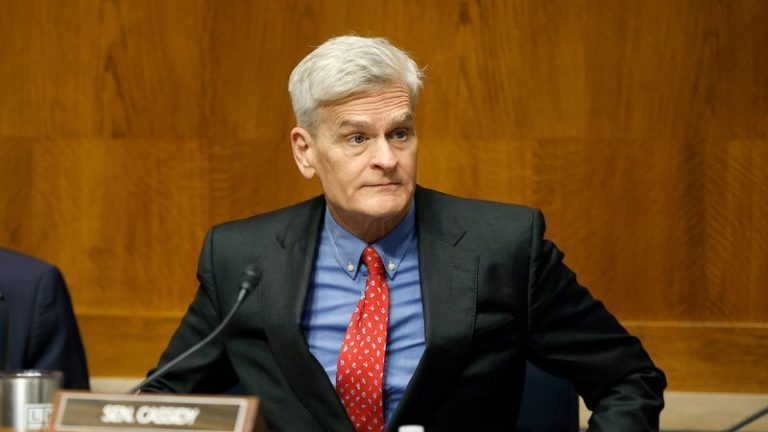A battleground district House Republican is wading into the redistricting war that has seized the U.S. with his own new proposal to crack down on ‘partisan gamesmanship.’
Rep. Mike Lawler, R-N.Y., has introduced a bill called the Fair Apportionment and Independent Redistricting for Maps that Avoid Partisanship (FAIR MAP) Act, which would impose new guardrails on the process of changing congressional districts across all 50 states.
The bill would bar states from drawing districts for or against a specific political party or candidate and ban the creation of new congressional maps more than once a decade following the U.S. census.
It comes as election watchers eye Virginia and Maryland as the latest states whose Democrat-led legislatures could move to redraw their congressional boundaries ahead of the 2026 midterm elections.
Earlier this month, a state Supreme Court judge in Lawler’s own home turf of New York ruled that New York City’s lone Republican-held district is unconstitutional and must be redrawn — handing potentially a consequential win to Democrats.
Lawler said of Democrats’ push in his state, ‘[Gov. Kathy Hochul] and [House Minority Leader Hakeem Jeffries’] scheme to redraw New York’s congressional districts months before an election is a blatant power grab and misuse of public office.’
The growing redistricting war was kicked off last year when Texas’ GOP-led legislature approved a new congressional map that could give Republicans as many as five new seats in the House of Representatives come the November elections.
Redistricting normally occurs every 10 years after the U.S. census is taken to ensure that seats in the House are reflective of each state’s population. And while there’s a patchwork of state laws aimed at blocking those districts from being redrawn along partisan lines, there is no current federal standard.
In addition to banning mid-decade redistricting in most cases and creating a federal gerrymandering standard, Lawler’s bill would also create a host of new provisions dictating how those populations are ultimately counted and how disputes can be resolved.
The bill would block state and local courts from legal redistricting fights, for example, leaving it to federal judges to weigh in on those fights.
It would also mandate that just U.S. citizens are counted toward state populations when creating new maps — something that could take a significant amount of power away from sanctuary jurisdictions that can currently factor numbers of illegal immigrants who cannot vote when apportioning districts.
The legislation also includes new electoral provisions like barring ranked-choice voting in federal elections, requiring photo ID for voting in those elections, and banning same-day registration in federal elections.
Lawler was among the House Republicans who forcefully came out against the growing redistricting war last summer, when leaders in Texas and California were going toe-to-toe with threats to redraw their maps.
But it does not appear likely as of now that his bill will get taken up for a House-wide vote, given House GOP leaders’ prior insistence that redistricting is a states’ issue.
‘Voting rights and equal representation only work if the system itself is fair, transparent, and trusted. My FAIR MAP Act puts clear guardrails around congressional redistricting, ends mid-decade political map rigging, and ensures that federal elections reflect the voices of lawful voters, not partisan gamesmanship,’ Lawler told Fox News Digital. ‘Every voter deserves confidence that the system is fair and that their vote counts the same as anyone else’s.’










